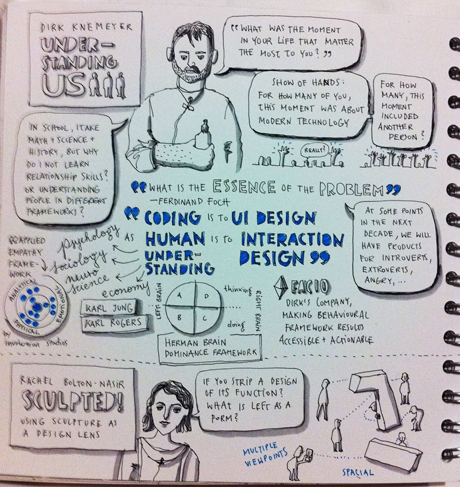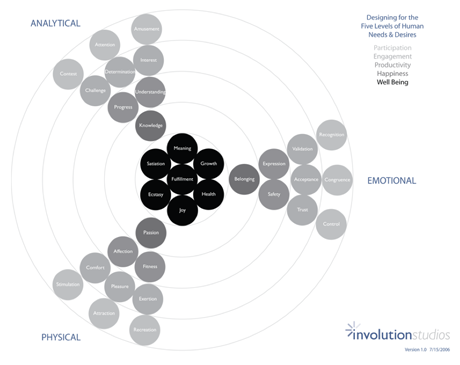Last week, the IxDA's Interaction12 conference in Dublin, Ireland brought together the professional interaction design community from around the globe for four days of inspiring talks and workshops.
Involution Studios was well represented with two of our leadership team speaking. Involution Founder, Dirk Knemeyer examined the complex, cross-disciplinary question of how people understand themselves and each other, in his talk "Understanding Us: The Next Frontier", which received a write up in Irish tech publication Silicon Republic, and Director of Design Strategy, Erik Dahl discussed a framework for "Cultural Design".
Understanding Us
While humanity has put men on the moon, mapped the human genome, and found cures for some of the most debilitating diseases, the scientific, organized understanding of human motivation and behavior has largely remained the undiscovered country. Its seems that the essential, internal human condition has been left to wither, while external, physical aspects of the world have been developed almost beyond the limits of our comprehension. Because of this, immense opportunity now lies before us to revolutionize how we understand ourselves and others, and improve the quality of the world and our lives. Knemeyer postulates that the next great frontier of human endeavor is to be found in this knowledge, the use of which will impact us as citizens, designers, and marketers. He argues that interaction designers should be centrally focused on these opportunities and lead this future.

Sketch notes for "Understanding Us" by Eva-Lotta Lamm
The "Understanding Us" talk is a natural extension of the Applied Empathy framework, first published by Knemeyer in September, 2006 as a series of articles for user experience magazine UXmatters. These pieces address how we approach designing for the whole person, in ways that extend beyond the typical UX practice.
Part One: Applying Empathy to Design
Part Two: Dimensions, Needs, and Desires
Part Three: Real-World Applications

A visual depiction of the Applied Empathy framework
Cultural Design
In his presentation on Cultural Design, Erik Dahl contends that as a design profession we need to expand our discourse to include culture and cultural theory into our understanding of interactions, experiences, and design. The products and services we design and deploy are embedded within a culture and not just a context. But culture is an important concept that is often overlooked by designers. We need to think beyond user's goals, needs, desires, emotions, context, psychology and principles of design and start designing from a place of culture. Ultimately, design (even if data and pattern driven) is subjective and we bring our own historical trajectory to our designs. Having a deeper understanding of culture will have a direct impact on what we bring to our design decisions.

The products and services we design are embedded within a culture